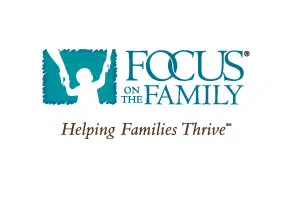By Maria Caspani and Jonathan Allen
NEW YORK (Reuters) – Scenes of crowds gathering outside bars prompted New York’s governor, his state hardest hit along with New Jersey by the coronavirus pandemic, to urge local officials and businesses on Monday to strictly honor reopening guidelines.
“To the local governments I say, ‘Do your job,'” Cuomo told a news conference. Over the weekend he criticized New York City street crowds outside bars and demanded people adhere to social distancing rules of six feet (two meters).
Both Cuomo and neighboring New Jersey Governor Phil Murphy said they were keeping open the option of reimposing restrictions if local officials fail to stop large public gatherings that risk spreading infection.
“I hope to God we don’t have to,” Murphy said during a visit to the Atlantic City boardwalk when asked about the possibility of shutting down businesses again.
New York and New Jersey between them account for more than a third of the nearly 116,000 U.S. deaths. Both have followed health guidelines for reopening businesses while all measures of infection drop – new cases, deaths, hospitalizations and positive rates among those getting tested.
Cuomo said on Sunday his state received 25,000 complaints of violations of social distancing and other emergency requirements, mostly in Manhattan and in the Hamptons, affluent beach communities on the east end of Long Island.
Cuomo said the state, which issues liquor licenses, would enforce the rules by sending inspectors to restaurants and bars flouting the guidelines, adding: “You can lose your liquor license.”
New York City Mayor Bill de Blasio canceled public appearances on Monday due to illness, but he too has voiced concern about crowds gathering in parks and outside bars.
SECOND WAVE
Fears of a new wave of the coronavirus in hard-hit U.S. states – or a failure to get a grip on the first wave in some others – have led health experts such as top infectious disease official Anthony Fauci to urge caution.
Oregon has put county applications to reopen on hold after the state reported a record daily rise last week, and Utah on Friday ordered most of the state to halt reopening while it investigated a jump in cases.
But most states are not considering a second shutdown as they face budget shortfalls and double-digit unemployment. Many went ahead with reopenings before meeting the government infection rate guidelines for doing so.
The Jersey Shore tourist town of Asbury Park backed down from its threat to open restaurants to indoor dining on Monday in defiance of state mandates after Murphy filed a lawsuit.
Alabama and South Carolina reported a record number of new cases for a fourth straight day on Sunday. Alaska, Arizona, Arkansas, California, Florida, North Carolina and Oklahoma all had record numbers of new cases in recent days, according to a Reuters tally.
Many state health officials partly attribute the increase to gatherings over the Memorial Day holiday weekend in late May.
Scott Gottlieb, the former Food and Drug Administration director who has advised the White House on the coronavirus, said on Monday that flare-ups needed to be addressed with aggressive contact tracing and targeted responses.
“We’re not going to be able to shut down the country again this summer. We’re probably not going to be able to shut down the country again this fall,” he said on CNBC.
“And so we’re going to need to try to isolate the sources of these outbreaks and take targeted steps. If we can’t do that, these will get out of control.”
One of the worst affected Oklahoma counties is Tulsa, where President Donald Trump will hold his first campaign rally since early March on Saturday. Those attending will have to agree not to hold the campaign responsible if they contract COVID-19.
(GRAPHIC: Where coronavirus cases are rising in the United States – https://graphics.reuters.com/HEALTH-CORONAVIRUS/USA-TRENDS/dgkvlgkrkpb/index.html)
(GRAPHIC: Tracking the novel coronavirus in the U.S. – https://graphics.reuters.com/HEALTH-CORONAVIRUS-USA/0100B5K8423/index.html)
(Reporting by Doina Chiacu in Washington, Jonathan Allen and Maria Caspani in New York, Lisa Shumaker in Chicago; Writing by Sonya Hepinstall; Editing by Howard Goller)




